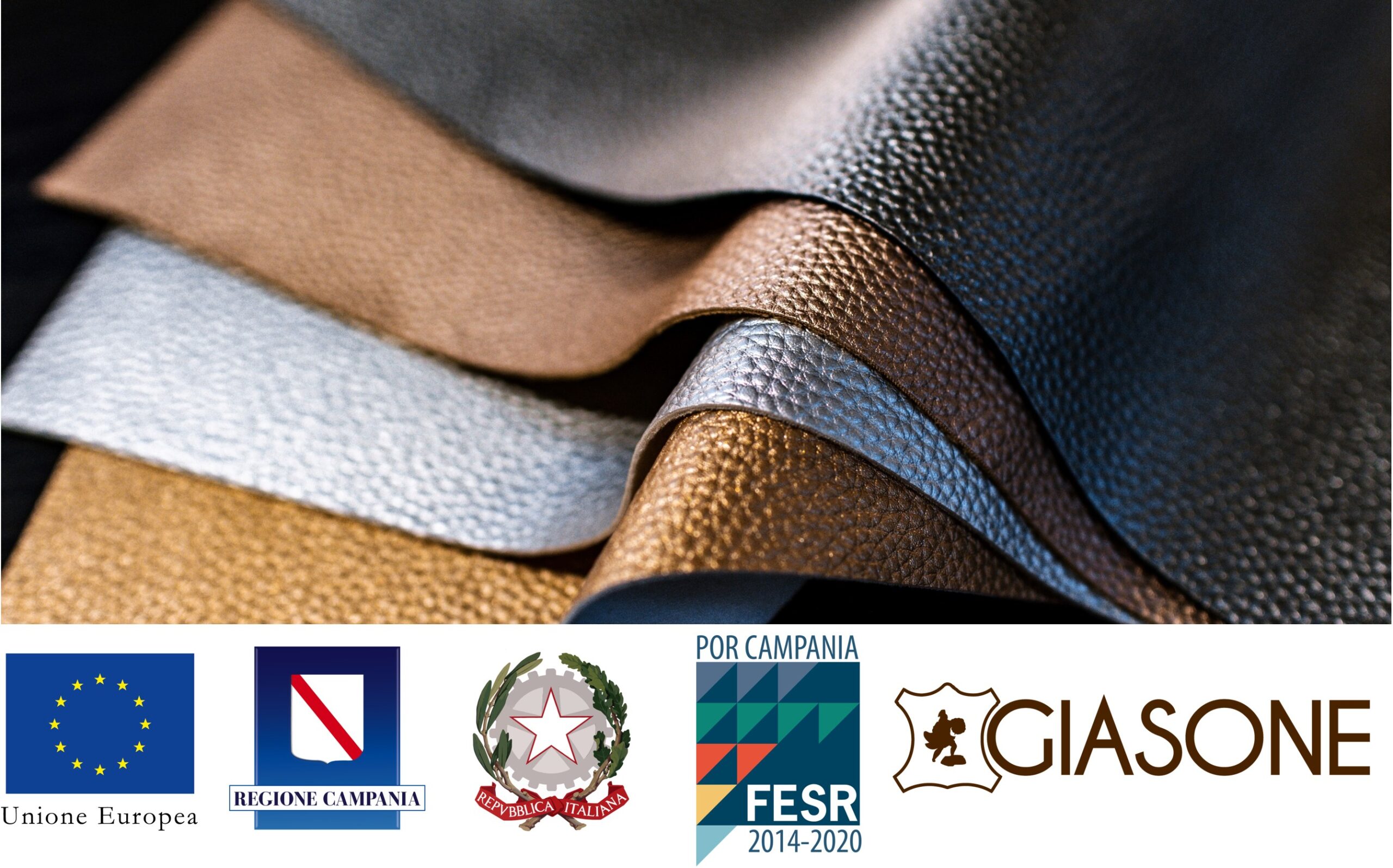The GIASONE project (Management, Innovation, Environment, Sustainability and Ecological Innovations in the tanning industry), financed by the European Regional Development Fund POR Campania FESR 2014-2020, has as its objective a product innovation, aimed at reducing the use of chromium and metals in the leather tanning process.
The GIASONE project is proposed by a partnership made up of the company Conceria Vignola S.r.l. and Eng4Life S.r.l., and will make use of the scientific consultancy of the Department of Industrial Engineering of the Università degli Studi di Salerno.
THE OBJECTIVES
The need to be met is the reduction of the use of chromium and other metals by the tanning industry, with the aim of making the production process more sustainable and with less impact on the environment, without excessive decrease in the quality of the finished products.
The primary objective of the project is the replacement of chromium with other molecules with a tanning effect, i.e. capable of cross-linking collagen (the main component of animal skins), reducing its putrescibility and giving the finished product good mechanical and barrier properties. Chrome tanning allows these results to be obtained, but at the expense of a considerable environmental impact, given that due to the intrinsic nature of the process it is necessary to use large excesses of the tanning element, excesses which must then be removed using abundant washing water, realizing two high-impact effects: a high consumption of water and a significant release of chromium into the environment.
The proposed solution consists in the production, through an innovative technology developed by DIIn-UniSA and Eng4Life Srl, of nanoparticles of tanning agent of vegetable origin (tannins) or other crosslinkers obtained, in any case, by green synthetic methods. The nanoparticles make the tannins (already in use for a long time in the tanning industry, but with lower quality results than chrome tanning, mainly for reasons related to the availability of the tannins themselves) capable of spreading in the leather matrix and expressing the binding action, improving the final result of the process, in terms of both sensory characteristics (aesthetics, touch), stability (resistance to rot), and mechanical. It is not negligible that the tannins could be derived from the recycling of waste from the agri-food industry (for example from the treatment of chestnuts and/or hazelnuts), effectively creating an example of a circular economy.
Total cost of the project: 629.220,50 €
of which pertaining to Eng4Life: 131.962,50 €
Financial contribution: 415.869,90 €
of which pertaining to Eng4Life: 89.734,50 €
On 14 June at 11 there will be the dissemination event of the results of the GIASONE project.
GIASONE loncandina evento 2
